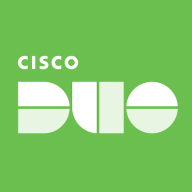

Cisco Duo and LastPass Business are competing in cybersecurity solutions. Cisco Duo excels with robust security features, while LastPass Business has an advantage in password management, offering extensive features that users find worth the investment.
Features: Cisco Duo offers advanced authentication methods, including multi-factor authentication and versatile integrations, allowing seamless user access control. LastPass Business provides a secure password vault, simplified password sharing, and credential management across multiple devices.
Room for Improvement: Cisco Duo could enhance user interfaces to improve ease of use and simplify configuration processes. It may also expand integration support for non-traditional systems. LastPass Business could offer more competitive pricing and enhance reporting capabilities for better analysis. Additionally, it should focus on reducing potential security vulnerabilities.
Ease of Deployment and Customer Service: Cisco Duo is known for its quick deployment with strong customer support to ease integration into existing systems. LastPass Business impresses with a straightforward deployment process and intuitive interface, supported by dedicated customer service that facilitates onboarding for teams new to password management.
Pricing and ROI: Cisco Duo provides a competitive pricing model with a strong ROI focused on enhancing security. At the same time, LastPass Business is noted for its cost-effectiveness due to its comprehensive password management suite, delivering high returns through improved efficiency and user satisfaction.
I think Cisco Duo offers a good return on investment for startups, newer organizations, or those utilizing cloud-based applications.
I have not seen ROI with Cisco Duo; probably the opposite, because it impedes productivity time to be able to get into the system.
From my point of view, the biggest return on investment when using Cisco Duo is the security and the ease of setting it up.
They got back to us quickly, were nice, and gave us what we needed.
I would rate their support 10 out of 10.
I would rate support for Cisco Duo a 10, as I have never had a negative experience.
In my last contracting position, it was a large one for a major worldwide airline that had hundreds of thousands of devices that could use Cisco Duo, and it scaled very well.
You would not need many more engineers to manage Cisco Duo even if we scale up to 500 employees because it is so simple to manage.
I believe Cisco Duo is very scalable because it is cloud-based.
We have not had any Cisco Duo outages across all the companies I have worked for that utilize Cisco Duo.
The stability has been excellent.
When there is a bigger problem, we get notifications from Cisco Duo saying, 'Hey, we have a problem,' and that has helped us.
If you don't have internet access, you can't access your computer, only local access is available.
It lacks some dynamic identity management features compared to other products such as SailPoint.
Cisco should allow easier integration with third-party equipment because Cisco's own equipment is expensive.
The pricing is acceptable to them.
Their website lists $3 per month per user for the Essential license.
One of my customers recently received a billing statement charging 3,600 US dollars for 100 users for one year.
From a management perspective, I appreciate that we can enroll or control devices on the back end for people who get a new phone and forget to handle Cisco Duo properly and need to add a new device.
Our company benefits from all those features of Cisco Duo with confidence, and we feel very secure with it in terms of authentication of our logins.
The benefit of having a complete passwordless environment in our organization is that it's gotten people away from using the sticky note under their keyboard - which is a huge problem.
| Product | Market Share (%) |
|---|---|
| Cisco Duo | 3.4% |
| LastPass Business | 1.8% |
| Other | 94.8% |

| Company Size | Count |
|---|---|
| Small Business | 34 |
| Midsize Enterprise | 20 |
| Large Enterprise | 41 |
| Company Size | Count |
|---|---|
| Small Business | 8 |
| Large Enterprise | 7 |
Cisco Duo is a cloud-based identity security platform safeguarding critical resources for any user and device worldwide. Known for its ease of use, Duo offers seamless protection across multi-cloud, hybrid, and on-premises environments.
Cisco Duo is designed to secure access with identity-first protection and provides extensive visibility throughout an organization's identity ecosystem. Offering multi-factor authentication, Duo facilitates easy integration and management, allowing teams to protect data effectively on VPNs, applications, and networks. Its single-pane management improves security processes while enhancing trust, making it suitable for diverse IT infrastructures.
What are the key features of Cisco Duo?
Which benefits and ROI should users consider?
In industries like education and finance, Cisco Duo is widely employed to secure multi-factor authentication across platforms such as email, databases, and servers. Its integration capabilities with Microsoft 365, Active Directory, and VPNs like AnyConnect are instrumental in verifying user identities using mobile apps or OTPs, catering effectively to both remote and on-premise environments.
LastPass Business enhances enterprise security with features like password sharing, user deactivation, and login control. Integrated with Active Directory, it ensures password management through a security dashboard, multifactor authentication, and YubiKey support.
LastPass Business provides comprehensive password management by supporting secure storage, shared folders, and master passwords for streamlined access. With an enterprise admin console and robust reporting tools, it efficiently manages credentials. It supports secure storage for procedures and notes, crucial for IT departments. Improvement areas include group inheritance, admin capabilities, and automated password rotation. Issues like URL recognition, plugin stability, and user access reporting need addressing. Enhancements in mobile app navigation and technical support are also needed, alongside increased customization and authentication options.
What are the key features of LastPass Business?In specific industries, LastPass Business is implemented as a vital tool for storing and synchronizing encrypted credentials, supporting robust password policies, and facilitating secure access control management. Organizations benefit from storing shared accounts and managing core enterprise admin passwords, promoting higher security standards across users and applications.
We monitor all Single Sign-On (SSO) reviews to prevent fraudulent reviews and keep review quality high. We do not post reviews by company employees or direct competitors. We validate each review for authenticity via cross-reference with LinkedIn, and personal follow-up with the reviewer when necessary.